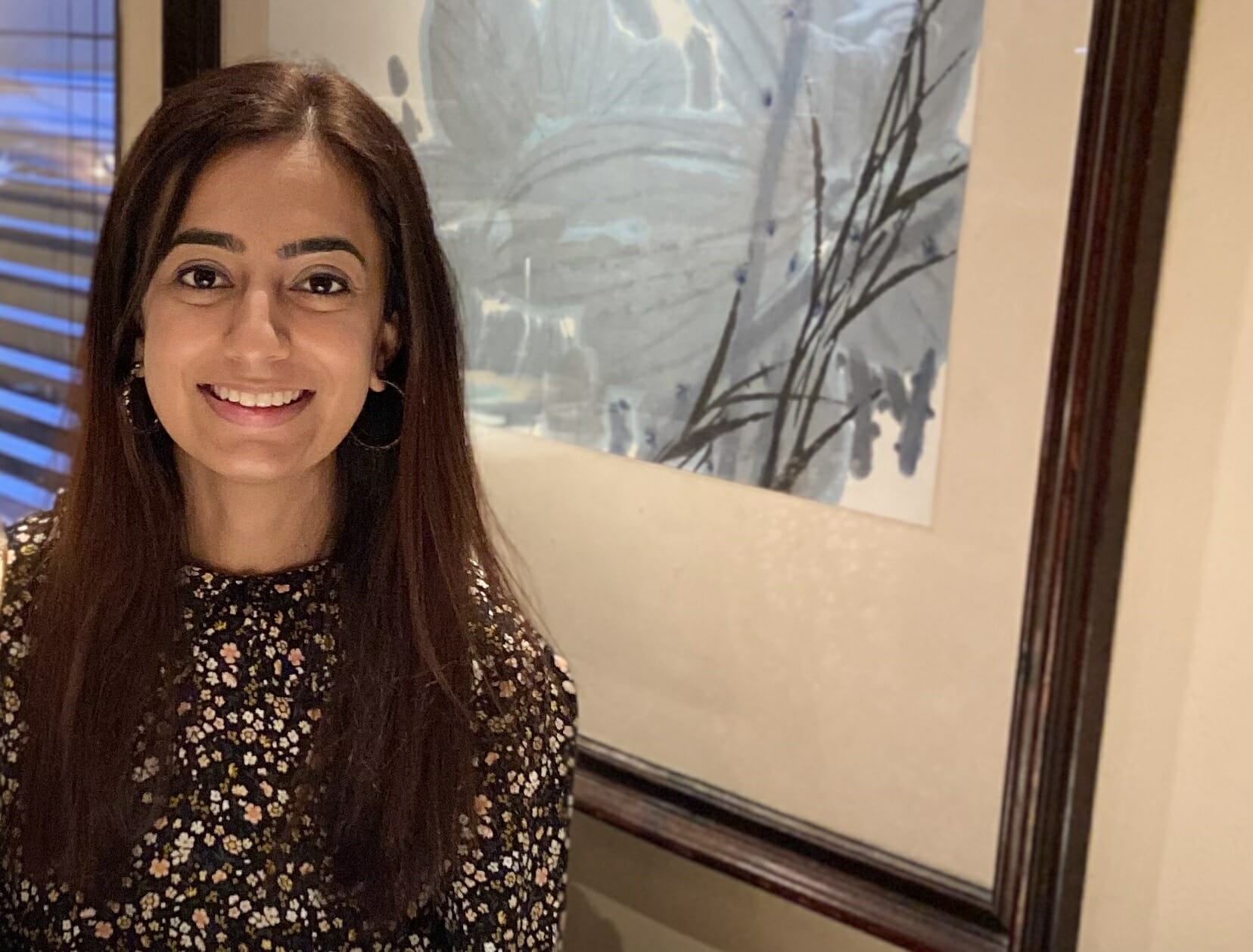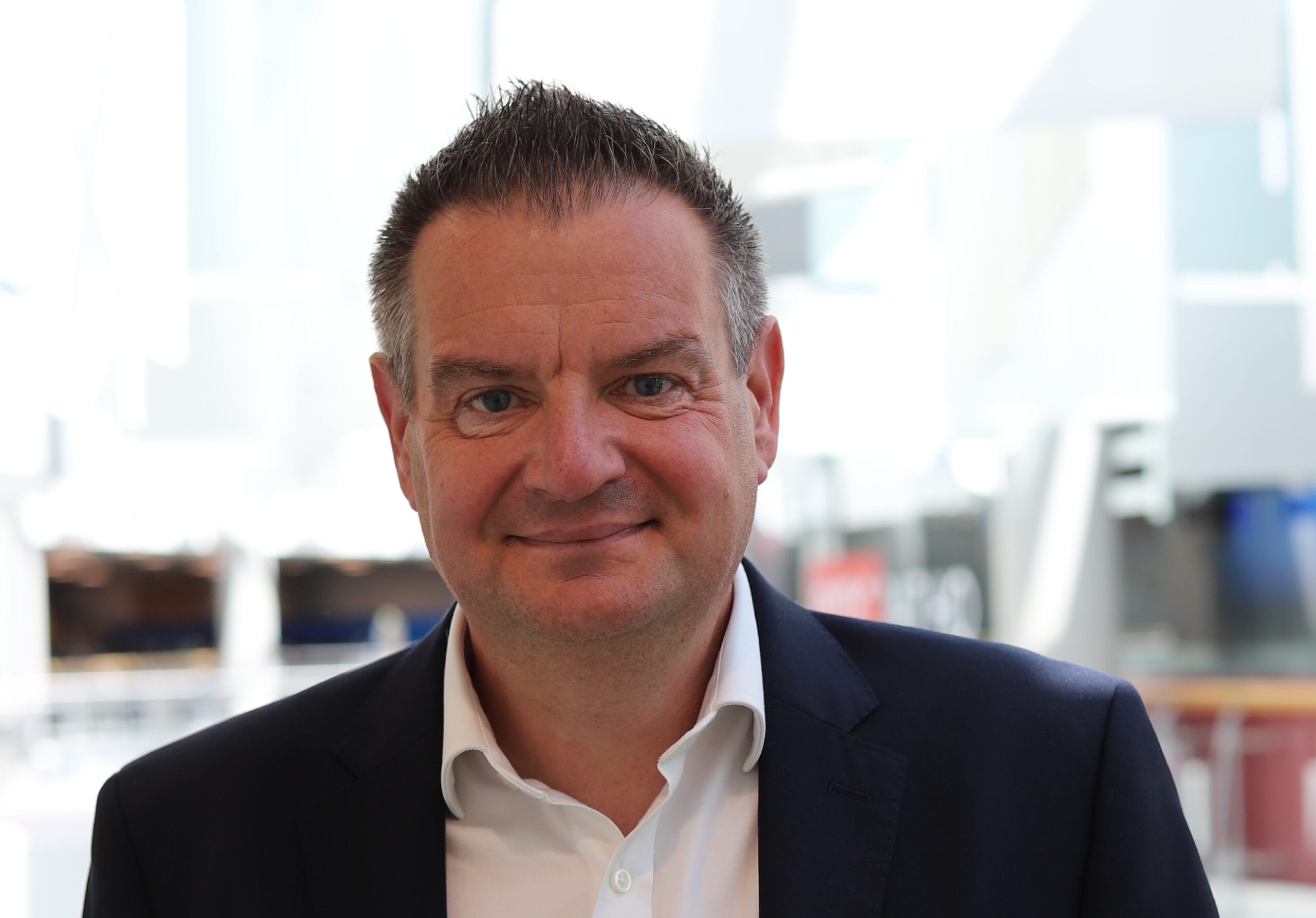Blog
Chandni Palan’s path from career uncertainty to TechWomen100 winner

Chandni Palan is a Product Manager at Faculty. She is the recent recipient of a TechWomen100 Award and is an advocate for widening access to tech careers.
While friends began various grad schemes, Chandni’s plan to find a career that suited her involved a lot of experimentation. “I decided to spend that year trying out different things. This included going from project management in advertising to a stint in investment banking. I took what I liked from those experiences, thought about areas I wanted to develop in, and initially thought consultancy was the best option.’’
New challenges and new opportunities to learn
Starting in consultancy proved to be a daunting leap; her first project was a technical project with Refinitiv, which is now a subsidiary of the London Stock Exchange Group. Working with a team of frontend and backend engineers and being exposed to software development for the first time initially filled Chandni with doubt in her ability to successfully do the job. After several moments of frustration, Chandni grew to accept the project – it was a challenge, but a good one. She remarks, “I actually realised how enjoyable it was and my confidence increased. Who knew I’d actually end up enjoying being out of my comfort zone so often? It really is the best opportunity to ask questions, learn and grow. It was after this experience that I knew I wanted to invest more time and effort in developing my technical skill set.’’
From this, Chandni sought out inclusive coding courses online and came across CodeFirstGirls. “I specifically looked for a place to learn with other women from non-tech backgrounds. I did a frontend course with them and then followed with a course in Python.” It was these courses that confirmed her desire to work in tech full time, ultimately leading her to a career with Faculty.
Chandni has been able to carve her own path as a Product Manager at Faculty. She has been instrumental in creating a collaborative and empowered culture within her team, even under the significant pressures brought by the pandemic. Her passion for knowledge sharing has led her to develop a product curriculum, onboard new joiners to the product vision, and promoting product thinking. From working on the life-saving Early Warning System, at the start of the pandemic which is currently used by the NHS, to supporting Faculty CEO Marc Warner on a funding round, Chandni has drawn on her career experiences to date to create a career that truly interests her.
Outside of work, Chandni has been eager to give back to the CodeFirstGirls community that helped her enter the tech sector. “It was after I did the coding courses that I became involved in panel events with them. I’ve shared my experience as a woman working in technology, emphasising that you don’t need to come from a technical background to succeed in a tech career. More recently, I’ve run a few courses on product management: what it is and what skills are important in that career path. After attending some of the courses, a few women built up the confidence to take the first step of applying for a role in technology. I love hearing about this; being able to help drive that change is a privilege and incredibly rewarding.”
The tech sector is becoming increasingly diverse
Brilliant progress has been made over the last few years – more and more women are establishing rewarding careers in technology. But there is still work to be done. Companies are increasingly investing in ways to break down barriers to access, yet one major issue is that these barriers often present themselves early on.
“Young women can be hesitant to consider a career in tech or a STEM education. While a lack of a STEM degree certainly won’t prevent a woman from a successful career in tech, it needs to be seen as a realistic option early on.” As Chandni adds, “I worry that young women are not always given sufficient information to make informed decisions. We need to change this in the early part of education if we want to increase diversity in the technology sector. Enabling young women to see technology as a legitimate career path requires role models who are empathetic to their challenges, to help them make these informed choices.”
The importance of widening access to tech careers is clear, and building better tech relies on diverse representation and input. It’s a critical consideration when it comes to making decisions. One of the downsides of not having as many women as men in the tech industry is that we’re missing half of the population: we’re missing a bunch of talented people who bring in new ideas and ways of thinking. There’s good evidence that teams with diversity of thinking outperform homogenous groups on complex tasks, which is particularly relevant for the type of work we do in tech. As Chandni states, “when you’re developing AI, it’s key to have a group that is representative of the general population in the room to help identify biases in historical data and offer mitigations. I’ve worked alongside so many fantastic women at Faculty and the value they add couldn’t be clearer.”
TechWomen100 winner
Chandni’s unique career path and devotion to widening access to tech led her to be named as an individual winner at last year’s TechWomen100 Awards. ‘’Winning the award was very humbling, I was taken by surprise. It was so nice to be recognised for my time at Faculty.’’
Since her win, Chandni has returned to supporting groups that aim to promote diversity in tech, taking up a mentorship role with an organisation called Black Valley which encourages people from ethnic minority backgrounds to apply for careers in tech. Chandni adds, “I want to help expand access to everyone who is interested in pursuing a career in tech, which is why I’ve been active with these groups. I want to inspire confidence in anyone who is considering in a career in tech- if you combine curiosity and interest, you can do it and you can succeed in it, no matter what background you come from’’




